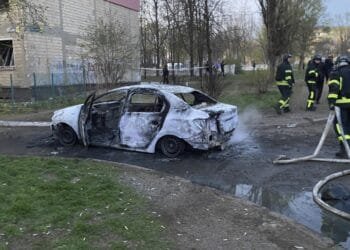Israelis are divided over the war and their opinions of the government, resulting in a low turnout and higher tensions.
Tel Aviv, Israel – Israelis voted on Tuesday to elect mayors and local council members in 197 towns and cities and 45 regional council representatives.
Voting started at 7 am, and will carry on until 10 pm, in elections that have been delayed twice, from October 31 to January 31 then to Tuesday, due to Israel’s ongoing assault on Gaza.
Seven million Israelis are eligible to vote, including tens of thousands who voted from active military duty in Gaza or the Israeli bases where they are stationed.
Turnout has been lower than in the last elections in 2018, according to estimates by the Ministry of Interior throughout the day.
The months leading up to the elections have been tumultuous ones for Israelis with mass protests throughout 2023 against changes to the judiciary that Prime Minister Benjamin Netanyahu’s government was trying to push through.
Different protest movements have continued throughout the war: Families of Israelis taken captive by Palestinian fighters on October 7 have protested to demand the government negotiate for their return, merging at times with antiwar protests and antigovernment protesters.
On the opposing side are Israelis who support the government’s war effort, which has led many observers to cast the elections as a referendum on Netanyahu’s government overall and its performance during the war in particular.
Among the most closely watched races is the one for Jerusalem’s mayor, in which incumbent Moshe Lion is widely expected to beat his challenger Ofer Berkovitch.
Dozens of protesters marched with signs reading: “War is a crime and nationalism kills” and “Stop the ethnic cleansing.”
A large banner just had “30,000” written on it, referencing the number of people Israel has killed in the latest war in Gaza.
“This war is a choice we [as Israelis] are making,” Addam said.
“There has been a weaponisation of people’s grief after October 7,” he added, describing being confronted during a protest by a young Israeli woman who shouted: “Soldiers are dying for you all. Shame on all of you.”
He added that most Israeli leftists will vote for Kalanu, the joint Jewish-Palestinian party headed by Moshe Kahlon, a former minister with the ruling Likud party.
Protests continue
Tamy Pollak, an activist and socialist who lives in the mixed Palestinian-Israeli city of Yafa (Jaffa), says the outcome of these elections will be important in determining whether calm is restored in mixed cities.
She worries about far-right National Security Minister Itamar Ben-Gvir, who she said has been weaponising Jewish civilians in mixed cities.
“Right now, [Tel Aviv] has an open society, but [if the right wing does well], then things can be different here,” she told media.
Plia Kettner, a 39-year-old former member of the local council in Kfar Saba in the suburbs of Tel Aviv, believes the war is distracting – even discouraging – people from voting.
“Some of the national rhetoric has filtered into the local election campaigns”, polarising people, she said
“At the beginning, nobody was against the war,” she told media.
“But if you ask people on the street, 50 percent of people will say that they want to [get a deal with Hamas] to get the hostages back, and 50 percent will say that Israel must keep going to destroy Hamas.”
Results are expected a few days later.









 United Arab Emirates Dirham Exchange Rate
United Arab Emirates Dirham Exchange Rate

